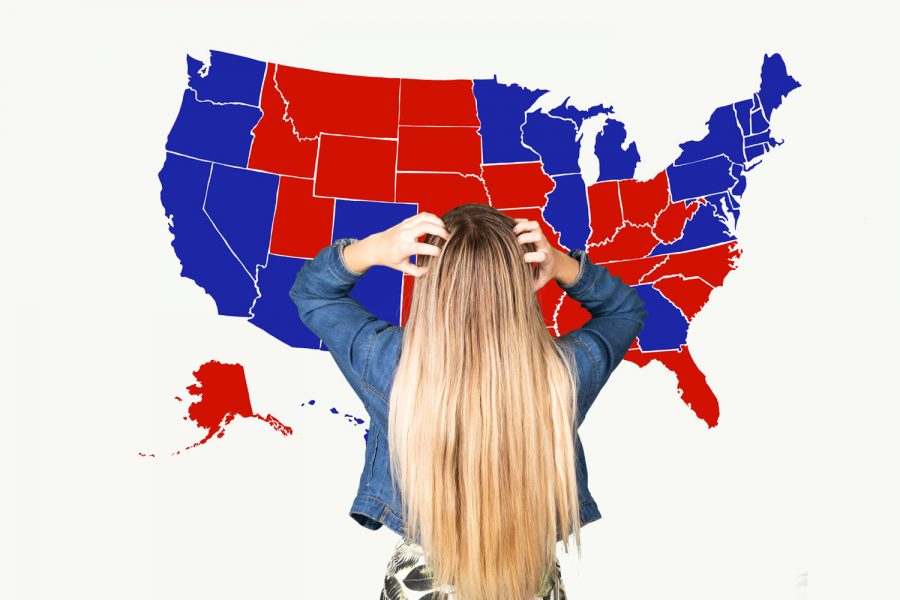The case against polarization
Fears around presidential elections and political opponents are misled
Photo by Abby Elliott
Whether it’s your “basic human rights” or “all your guns,” Americans on both sides are told every four years that the future of their freedom and democracy is on the line.
December 1, 2020
Whether it’s your “basic human rights” or “all your guns,” Americans on both sides are told every four years that the future of their freedom and democracy is on the line. Yet, save for a few major exceptions, the quality of life for most Americans will stay relatively the same when our nation shifts leadership.
This is because of the nature of the presidential office. Of course, everyone knows the story: a group of backwoods patriots beat a huge army of men in red jackets and then make a government with three branches. But there was always more to this.
The founders of our democracy spent years upon years, countless drafts, even a failed attempt, when they designed our government. How can we fool ourselves into believing the whole future could rest on one person who takes charge?
You see, the truth is, that with the checks and balances put on the Presidency, the impact is limited, or at least overestimated. The only real way to prove this, is to look back four years when the same ‘the world is ending if they get elected’ mentality was proven a fallacy.
One CNBC article from March 2016 claimed “If Donald Trump becomes the next president, stocks will fall 50%.” Obviously, November came and Trump was elected, and fateful predictions about the effect the new President elect would have on the markets were vastly exaggerated: “the Dow soared 257 points and brushed up against lifetime highs. The S&P 500 and the Nasdaq rose 1.1% apiece.”
We convince ourselves through increasing political polarization that the other side of the spectrum has it out for us personally, while this just isn’t the case. And there’s a chance that as you read these words, you yourself have it in the back of your mind that there is something especially sinister about those advocating for a different leader.
But there isn’t. These people you are diametrically opposed from are separated by two factors- media and interests — and not moral goodness. The second you shut out one side, and cement them in your mind as bad people, you lose. You lose the civility that leads to fruitful political discussions, and you lose the perspective of almost half the country.
Media is partly to blame for this polarization. One must consider that those supporting a candidate you see as obviously unelectable are more often than not, getting their information from different sources. “Fake news” has been credited as an evil in American politics and for good reason; it can draw viewers further into the trap of polarization and into a state where they are completely misinformed.
Even if we aren’t misinformed directly by fake news, we are uninformed. The echochamber of common thoughts, which shuts down any unapproved point of view has been a nasty scourge to both sides. This is where the view that the other guy’s victory would spell the end for the country.
To understand why support for Presidential candidates is just so fervent, it’s also necessary to look at interests. The political spectrum in America is best summed up by who you’re looking out for: your community and family, or every citizen within the country’s borders. And neither right nor left fall into these categories every time; it differs with every policy.
Any American who’s been exposed to media likely already has deep rooted biases towards one side and allegiance to the other. That doesn’t make us dumb, just manipulated. It’s not something sinister in your political enemies that makes them support their candidate, it’s where one gets their media from, and what interests they hold dear.
And in the end, if you don’t agree with this proposition, it’s OK. We are lucky (believe it or not) to live in a country where right and left get to take turns at the wheel every few years, so that our country doesn’t go off of the road altogether.
















